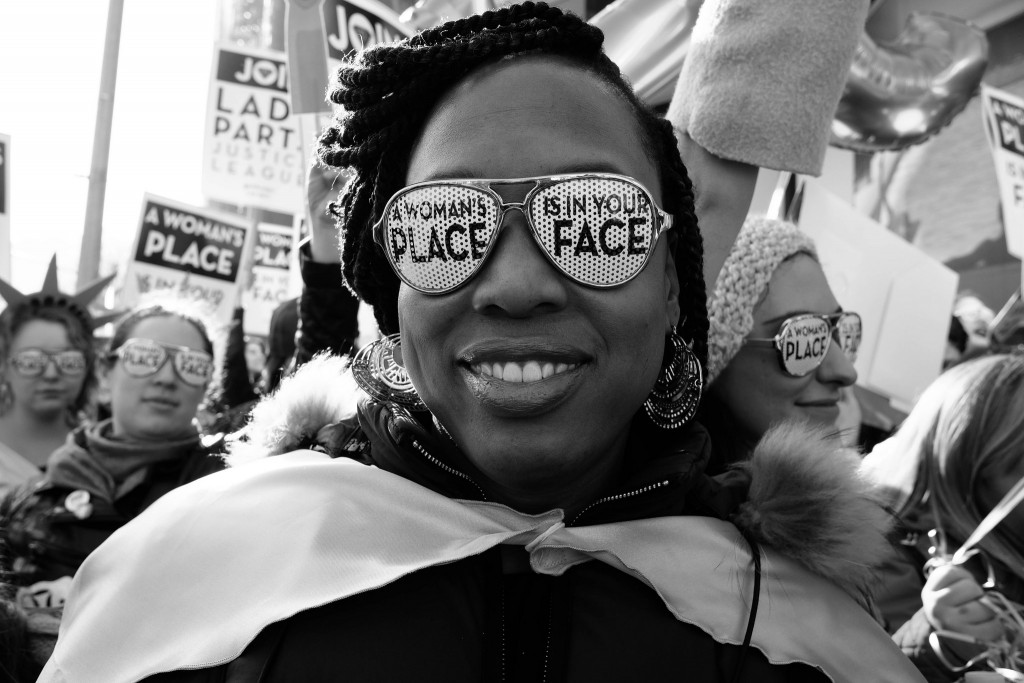Both of us were brought up with good manners. We were raised to be gentlemen. We learned, for example, that when a woman approaches, men must stand up. But should we, really? We’ve begun to suspect that what we as men must actually do in the presence of women is sit down.

We’re at the dawn of a new, God-breathed movement in the world; it’s one we believe will transform Christianity in ways as profound as the shift that occurred during the Reformation. And this movement—this new step toward the Kingdom of Heaven—will be led by those who have heretofore been on the margins. Women, we believe, will be chief among them.
One of the pastors at our church here in Portland, Mike Roth, talks often about the influence of the Enlightenment on the modern church (and its myriad denominations). Enlightenment thinking, Pastor Roth said on a recent Sunday, makes us “want the truth to be delineated and defined and completely comprehensible.” It’s about knowing in absolutes—the kinds that give us gender roles and tribal values. That, however, is antithetical to the ways in which Jesus often spoke of the Kingdom.
As Pastor Roth pointed out, scripture gives no clear, defined, and fully comprehensible description of Heaven. Instead,
“Jesus uses parables, stories, comparisons, metaphors, and similes as imperfect but deeply true expressions for a kingdom called Heaven. And we, in order to honor and to behold this kind of truth, need to be careful to deny our enlightenment proclivity to boil the Kingdom of Heaven down to statements and formulas and certainties about what it is and who belongs to it. Because when we do that, we lose the deeply good, intoxicatingly, overwhelmingly wonderful truth that is the kiss: The Kingdom of Heaven near, the Kingdom of Heaven at hand, is a dynamic, electric, pulsing, engaging kiss—a touch, an intersection of humanity and divinity within this world—here and now, today. This is about a way of being in the world that could perhaps be called The Realm of the Divine, or The Mode of Love.”
As Christians, we embrace the convoluted truth that the Realm of the Divine is here already but not yet. The Holy Spirit is alive and present in the world and has been moving us for 2,000 years ever closer to the fullness of the Mode of Love—whatever that may mean, whenever it may come. And there are times, it seems, when Spirit moves more forcefully—when God prompts more radical shifts in our understanding of the Divine nature and the ways in which we are called to be church.
This is why we must forgo the etiquette we learned as young men. It’s time for men to sit down and let women take the lead because this new God-breathed movement is Christ bringing forth the message taught on the mount: “Blessed are the poor in spirit, for theirs is the kingdom of heaven… Blessed are the meek, for they shall inherit the earth.” The poor and the meek, who know the Realm of the Divine better than anyone, are to introduce us all to it. We must now sit and listen to those who, through lack of privilege in the world, have learned to thrive in the Mode of Love. God’s new lessons will be taught to us by the marginalized: LGBTQ people, people of color, those forced to flee the lands of their birth. And among them, who better to learn from than women? They, after all, have been pushed to the sidelines even within those marginalized groups.
We had lunch a couple of weeks ago with another pastor we admire, Rev. Paula Stone Williams. The conversation turned at one point to this great shift we all sense is taking place within Christianity. The way Rev. Williams talked reminded us of what we’ve been learning at our own church regarding truth and mystery. She spoke of learning to see God not as a dispenser of punishment, but rather as a participant in the world’s suffering. She spoke of shifting our focus from orthodoxy (correct beliefs) to orthopraxy (correct practices).
Understanding that God is incarnate—weeping with us, rejoicing with us, perhaps even feeling anger with (but not at) us—is impossible for a mind that demands airtight logic. A church that invites us to explore the Realm of the Divine—the ways of being in the world that bring forth life and love—is a church that must forgo strict creeds and immovable rules. Christ, Spirit and Creator, is bursting forth, exposing the folly of the boxes in which we’ve attempted to place both God and ourselves.
God has never been in a box; only the Church has. It has been in a box built by men. But that is changing, too. Earlier we quoted our male pastor because he’s an insightful man—and his thoughts on the influence of the Enlightenment informed this post. But we have also learned much from our other pastor, Becca McMartin, whose sermons have challenged us to see the Old Testament in a new light. She has taught us lessons that inform not only how we treat each other, but how we approach our community. We are fortunate to call her our pastor too. We are fortunate to be at a church where the oversight team (what other congregations might call the vestry or board of elders) is majority-female. It is a privilege to be taught and led by these women. And we are convinced that this is what the Church of the future looks like: a place where everyone participates, where women lead, and men learn to be teachers only by being pupils.
Sitting down doesn’t mean that you don’t participate. Sitting down means stepping off the stage and out of the limelight, yielding to the voice to those who historically haven’t been heard. Sitting down means learning humbly to take instruction. When men take the time to sit down and listen—really listen—we’ll begin to hear the voice of Spirit speaking through the women in our lives.
Like our Facebook page and follow us on Twitter for more.
Photo by B.C. Lorio, used with permission through Flickr Creative Commons.











